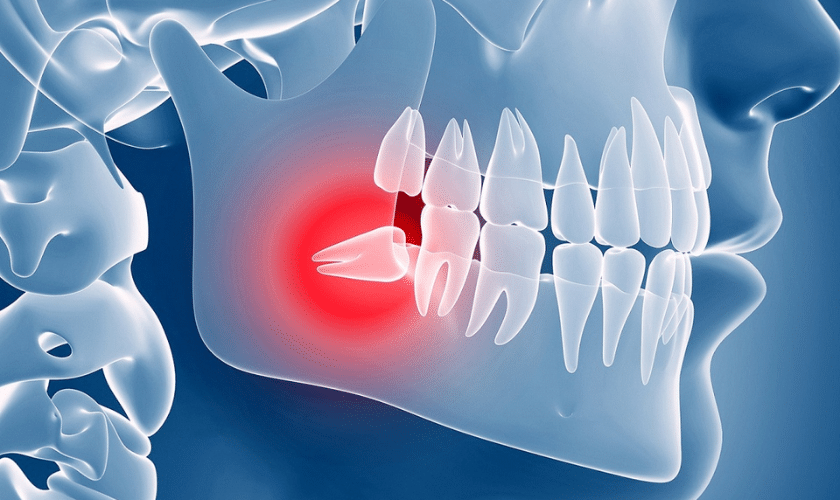Published on August 20, 2024

Have you ever wondered why some people need their wisdom teeth removed sooner rather than later? Wisdom teeth, those last molars that typically emerge in your late teens or early twenties, can be more trouble than they’re worth. Ignoring potential issues might lead to a range of dental problems that could have been avoided with early intervention.
Addressing wisdom teeth early offers a wealth of benefits, from preventing complex dental issues to easing recovery time. By taking action before problems arise, you can steer clear of complications and enjoy better oral health in the long run. In this blog, we’ll explore the top five benefits of early wisdom teeth removal and why it might be a smarter choice for your dental care. Ready to learn more about how early action can save you from future headaches? Let’s dive in!
1. Prevents Misalignment of Nearby Teeth
Early removal of wisdom teeth helps prevent potential misalignment issues. As these molars emerge, they can push against adjacent teeth, causing them to shift. This shifting can disrupt your bite and lead to overcrowding, making it harder to clean your teeth properly. By removing wisdom teeth early, you minimize the risk of this misalignment.
- Crowding Prevention: Early extraction prevents overcrowding and ensures your teeth remain properly aligned.
- Bite Maintenance: Removing wisdom teeth before they impact your bite helps maintain overall dental alignment.
- Easier Maintenance: Well-aligned teeth are easier to clean, reducing the risk of cavities and gum disease.
2. Reduces Risk of Infection
Wisdom teeth often become trapped or impacted, leading to potential infection. This happens when the teeth don’t fully emerge or come in at an angle. Early removal decreases the chances of these infections, which can be painful and require antibiotics or more extensive treatments.
- Avoids Infections: Extracting wisdom teeth before they become problematic helps avoid infections.
- Minimizes Pain: Removing the source of infection early reduces discomfort and prevents complications.
- Streamlines Treatment: Early removal leads to simpler procedures and faster recovery times compared to dealing with infections.
3. Eases Recovery Time
The recovery process is generally smoother when wisdom teeth are removed before problems develop. Younger patients often heal faster and with fewer complications than older patients. Planning the extraction early in life ensures a quicker and less painful recovery.
- Faster Healing: Younger patients experience quicker healing times and less discomfort.
- Less Complex Surgery: Early removal usually involves less complicated procedures and shorter recovery.
- Better Post-Op Care: Younger patients often handle post-operative care more easily, leading to a smoother recovery.
4. Prevents Damage to Adjacent Teeth
Wisdom teeth that grow in improperly can damage neighboring teeth by pushing against them or causing misalignment. Early removal helps prevent this damage, preserving the health and alignment of your existing teeth.
- Protects Adjacent Teeth: Removing wisdom teeth early prevents them from causing damage or misalignment to neighboring teeth.
- Maintains Dental Integrity: Preserving the alignment and health of your current teeth helps avoid more complex dental treatments later.
- Reduces Risk of Damage: Early intervention minimizes the chance of damage to surrounding teeth and structures.
5. Avoids Complicated Procedures Later
Addressing wisdom teeth issues early often means avoiding more complicated procedures down the line. If wisdom teeth are left untreated, they may require more invasive treatments, including surgical removal and extended recovery periods.
- Simpler Extraction: Early removal usually involves straightforward procedures and shorter recovery times.
- Avoids Future Complications: Removing wisdom teeth before they become problematic helps prevent more complex dental issues.
- Saves Time and Costs: Early intervention can save both time and money by avoiding the need for more extensive treatments later.
Early wisdom teeth removal offers significant benefits, including preventing misalignment, reducing infection risks, and ensuring a smoother recovery. Addressing these teeth before they cause complications helps protect your oral health and avoids more complex procedures later. If you’re experiencing issues with your wisdom teeth, consult with your dentist to discuss the best approach. Proactive care can lead to a healthier smile and a more comfortable dental experience.
